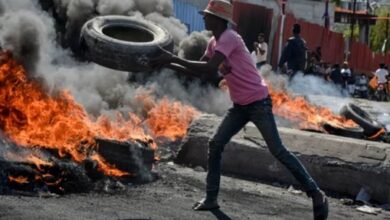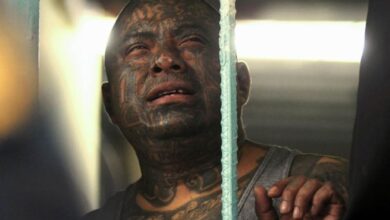Is Shinzo Abe’s Death the Fault of Japan’s Gun Control Laws?
A debate has erupted in Japan over the assassination of Shinzo Abe, with some supporters of legal gun ownership claiming that current gun control laws cannot prevent human violence.

Photo: Cabinet Office of Public Information
LatinAmerican Post | Christopher Ramírez
Listen to this article
Leer en español: ¿La muerte de Shinzo Abe es culpa de las leyes de control de armas en Japón?
On July 8, images were released that the whole world could see of the assassination of former Japanese Prime Minister Shinzo Abe. The 67-year-old man collapsed, in the middle of a public speech he was giving in the city of Nara, after receiving two bullet wounds in his body.
However, beyond what people outside the Japanese culture may think, the nationals of that country saw with astonishment how the most important politician in its recent history fell to the ground in the midst of a reality that was very little debatable until that moment. moment: anti-gun laws in Japan. Although in much of the western world the murders are seen as a social and cultural "routine" of their respective nations, in Japan, and its eastern bases, this situation is not seen as a reality or a "custom".
According to the 2018 Small Arms Survey, of the seven G7 countries: Canada, France, Germany, Italy, Japan, the United Kingdom, and the United States, the latter has the smallest number of gun ownership per inhabitant: between every 100 Japanese, only 0.3 weapons are registered.
In relation, the United Kingdom presents 4.9 weapons; Italy 14.4; France 19.6; Germany 19.6; Canada 34.7; and the anti-record is led by the United States with 120.5 weapons per 100 inhabitants. This, of course, is reflected in the number of shootings recorded in the North American giant: 300 so far in 2022, according to a count by the Armed Violence Archive (GVA).
For its part, Japan has only seen 14 deaths directly related to firearms since 2017; a figure that can be derived from the total blockade of weapons in civil society, which can only access hunting rifles, after passing rigorous psychological and social studies. In addition, in case of accessing this type of weapon, they must update their permit every three years.
You can also read: What Can We Learn From the Recent Massacres Around the World?
However, many people have questioned whether this effect is enough, accusing that, as Abe's murder showed, human violence is something that cannot be controlled. However, this truth can be seen, according to several experts, as a reminder that it is precisely the regulatory laws on weapons in Japan that make this type of situation less common than in other world powers.
One of them was Max Fisher, a columnist for The New York Times and an expert in the analysis of issues of global origin, who assured that “experts who investigate gun laws emphasize that even the strictest measures cannot totally eliminate the ability human from violence. Rather, the restrictions, if successful, can reduce the severity of such violence and impose barriers that make it less frequent."
Blame State Security?
In addition, it is important to remember the way and setting in which the murderer committed the crime, since it reveals two details worth analyzing: the weapon was handmade and Abe is completely vulnerable to attack.
The first images shown by the Japanese media NHK give evidence that the weapon used by Tetsuya Yamagami, who pleaded guilty to the murder, was not a normal pistol, but rather had a certain resemblance to a toy weapon.
With two aluminum tubes attached to a wooden base with the help of black tape, the man made a functional weapon, with which he was practicing for several days before the murder, according to the Japanese police. In addition, in a search of his house hours later, it was found that he had other similar weapons.
“If the shooter's ability to build and use such a device demonstrates that gun restrictions cannot completely eliminate violence from society, it also demonstrates that such measures tend to make that violence more unusual and less deadly. Fisher adds.
On the other hand, the authorities accepted their guilt in the death of the former Japanese prime minister, stating that anti-weapon laws cannot be an excuse to neglect the security protocols of public figures in the country.
“I think it is undeniable that there were problems with the escort and security arrangements for Abe,” Nara Prefectural Police Chief Tomoaki Onizuka said. In this way, the death of this important Asian politician has again called into question the way in which anti-weapon laws can or cannot stop violent acts in a given territory; with some even supporting legalization as a form of protection and others defending prohibition as the only strategy to reduce natural human violence.





